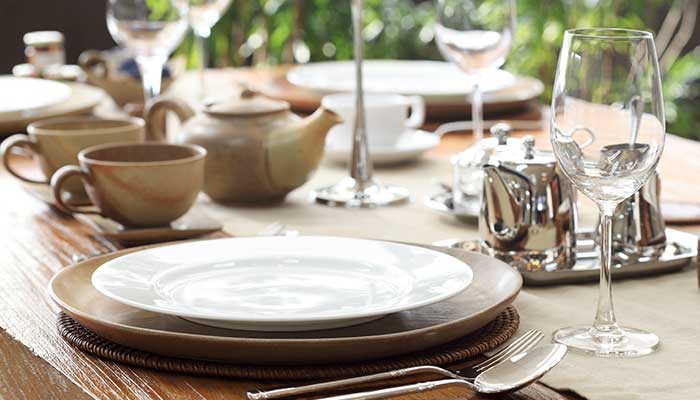
Dining Manners In Thailand: Food And Drink Etiquette
Observing proper food etiquette in Thailand and using good table manners are pretty much just a matter of common sense: Don't point with your fork, don’t talk with your mouth full, and so on. Only a few rules of table etiquette in Thailand differ from those in the West and are worth noting.
In Thailand, cooking and eating are taken quite seriously. But Thai people are easy-going when it comes to socializing. As a guest, your accidental infractions at the table will be overlooked or forgiven. However, it is essential for you to try abiding by the local table manners. Here’s a guide for you to follow to learn the dining etiquettes of Thailand.
Dining etiquette for drinking
In Thailand, you must never pour your own drink (be it a soft drink or tea), you must always be alert throughout the meal as to whether your neighbor's cup or glass needs refilling. If it is less than half full, it needs refilling; alternately, if your glass is less than half full, your neighbor is obliged to refill it. If he or she does not, do not refill it yourself, for this will cause your neighbor to lose face: instead, diplomatically indicate your need by pouring a little more drink into your neighbor's glass, even if it doesn't really need it.
Dining etiquette for toasts
If you are the honored guest, you will be expected to make a toast, usually soon after the host does or at the end of the meal, just before everyone departs.
Dining etiquette for utensils
Chopsticks are not traditionally used in Thailand, except when eating Chinese dishes in a Chinese restaurant. In Thailand, forks and spoons are used (never knives). If you need to cut things, use the side of your spoon first, then move on to the fork if necessary. If you are right-handed, keep the spoon in your right hand and the fork in your left.
Wait to begin eating
As in most Asian cultures, age and social status are given top priority. The rules of saving face apply at all times. Before you begin doing anything, wait for the most senior or higher-ranking person at the table to signal that it’s time to eat. If they don’t say anything, wait for them to begin their meal.
Dining etiquette for paying the bill
Usually, the one who does the inviting pays the bill, although the guest is expected to make an effort to pay. In some cases, other circumstances determine the payee (such as rank).
Tipping Etiquette
Tipping in Thailand isn’t customary in authentic restaurants. Nevertheless, you can allow the staff to keep the change if you like. A service charge (usually 10 percent) is often already added to the bill in most restaurants.
Above all, the most important thing to remember when dining out in Thailand: enjoy yourself!










